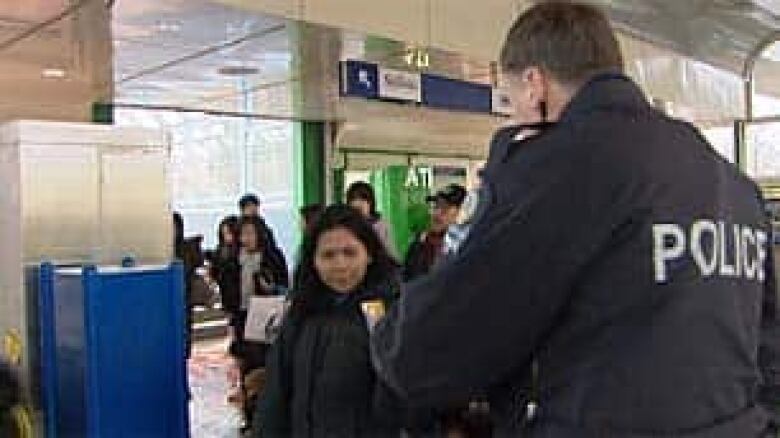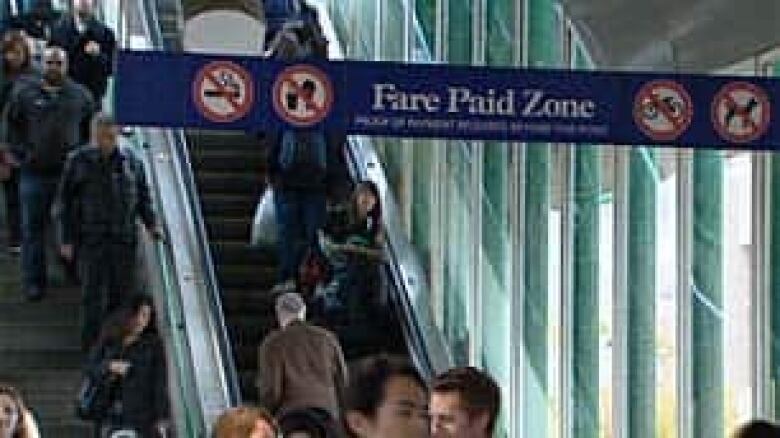TransLink cracking down on fare cheats

The system currently collects about $430 million in fares per year, but TransLink is losing millions of dollars a year to fare cheats and needs to make up the shortfall.
For a combination of reasons, including fare evasion, revenues across the system are down about seven cents per passenger, said TransLink spokesman Ken Hardie.
"When you multiply that by about 300 million passengers a year, it starts to add up into real money," said Hardie. "As a result of that we'll probably be under budget by about $6 million this year."
TransLink officials currently count on the honour system and know most people pay their fares, but in order to catch more of those who don't, enforcement is being stepped up.
Tipped by Twitter
Part of the tip-off for Translink has been in online social media, where officials have seen increasing numbers of tweets in which people brag about sneaking onto transit for free.
"What that signalled to us, maybe, was an attitude was starting to settle in, where all of a sudden people thought that it's OK," said Hardie. "They wouldn't think it was OK to go in and rip something off from the grocery store and there's no difference when you steal a ride on the transit system."
If you're caught not paying a fare or for not paying enough fare for the distance you've travelled, you can be slapped with a $173 fine.

The long-term solution, which willcombine smart cards and turnstiles, likely won't be in place until 2013.
But every transit systemeven those with turnstiles has to endure some level of fare evasion and there is more than oneway to deal with it, according to transportation consultant Stephen Rees.
"Those tickets are only enforceable by the rather clumsy procedures we have in our provincial court system, which is overloaded," said Rees. "[The fine] costs a lot to collect, so many [transit systems] don't bother. What we need is a penalty fare ... It may be lower, but you can collect it on the spot."
With files from the CBC's Leah Hendry












_(720p).jpg)


 OFFICIAL HD MUSIC VIDEO.jpg)
.jpg)



























































































